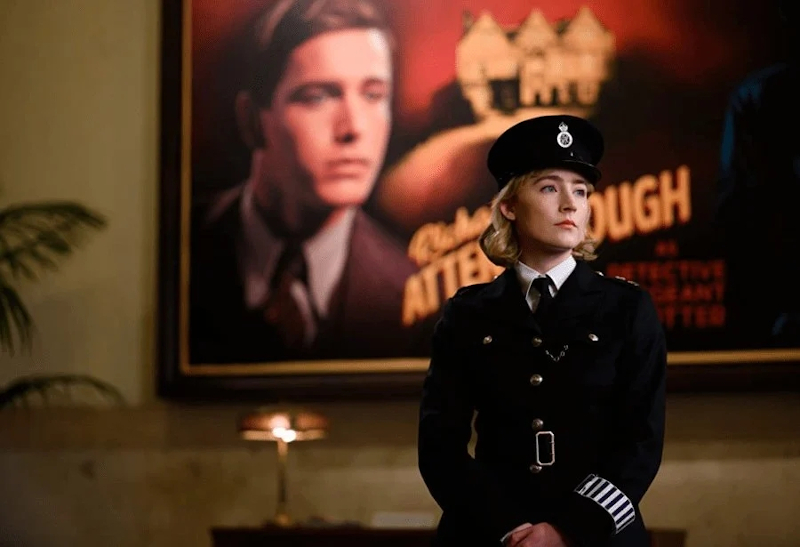Director – Tom George – 2022 – UK – Cert. 12a – 98m
**
A barely competent Inspector and a trainee WPC investigate a backstage murder at The Mousetrap in 1950s London’s theatreland – out in UK cinemas on Friday, September 9th
London West End, 1953. Following his involvement in a fight at a party to celebrate the hundredth performance of The Mousetrap at The Ambassadors Theatre, blacklisted Hollywood film director Leo Kopernick (Adrien Brody), hired by John Woolf (Reece Shearsmith) to make a film of the play, gets into fisticuffs with the play’s leading man Richard “Dickie” Attenborough (Harris Dickinson) over the latter’s wife and co-star Sheila Sim (Pearl Shanda).
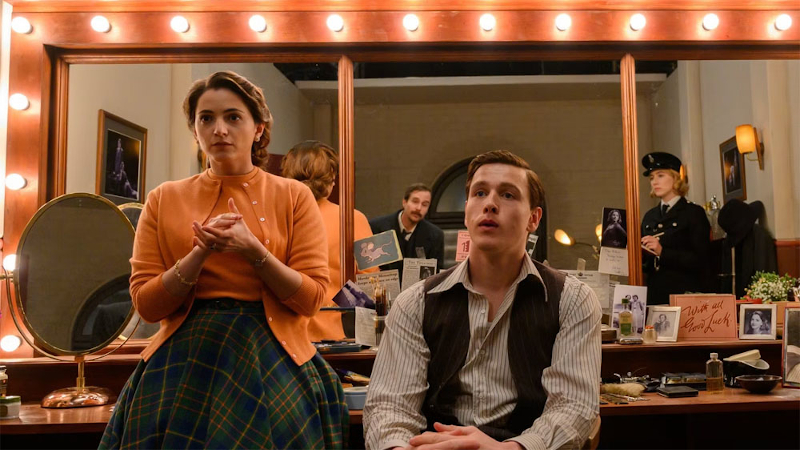
Later, Kopernick is murdered backstage by a mystery assailant. Perhaps it’s pertinent that Kopernick has ruffled numerous feathers in and around the production, not least foppish, English literary figure Mervyn Cocker Norris (David Oyelowo) who has been hired to write the script and despises everything Kopernick stands for, a feeling which proves in flashback to be mutual.
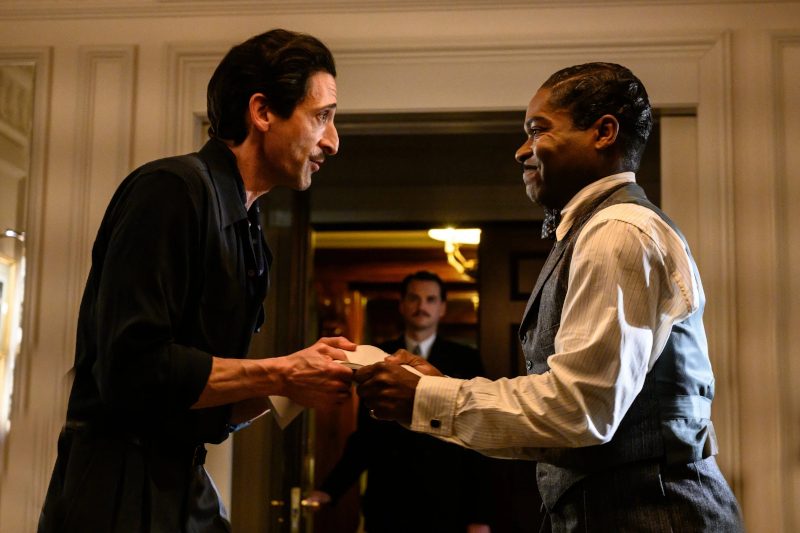
Thus begins a whodunit based around the world’s longest running play. The police are called in, with Commissioner Harold Scott (Tim Key) assigning alcoholic Inspector Stoppard (Sam Rockwell) and film buff and over-enthusiastic trainee WPC Stalker (Saoirse Ronan) to the case. He abandons her on a stakeout to visit the pub on pretence of a dental appointment (how did this get script approval?), she constantly says the wrong thing and jumped to improbable conclusions.
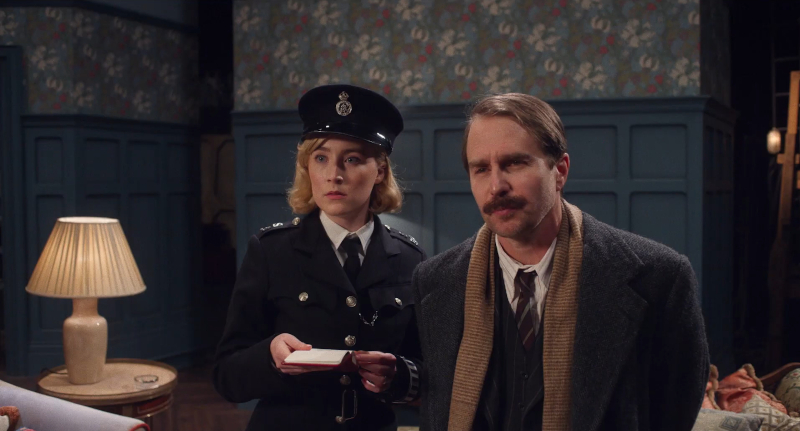
The theatrical production of The Mousetrap looms large here, but director George is no Hitchcock and this generally lacklustre film about murder in London’s theatreland is no Stage Fright (Alfred Hitchcock, 1950). It wisely doesn’t give away the plot of The Mousetrap (which anyway is impossible to follow from the few scenes featured here). In case the title is familiar, the film rather confusingly has nothing to do with the play See How They Run by Philip King.
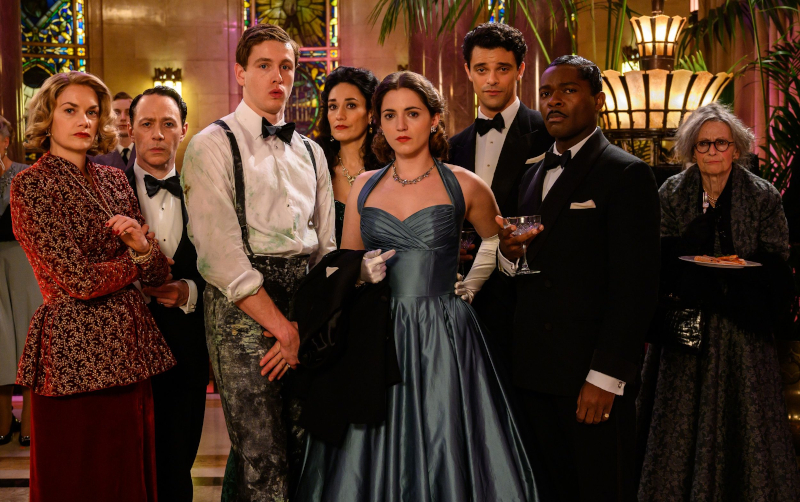
It’s also one of those films populated by an all star cast in the mistaken belief that that will generate a great movie. Sadly, that’s not the case: it generally requires a good script and appropriate casting. One of the reasons for seeing this ought to be the presence of rising star Harris Dickinson (Where The Crawdads Sing, Olivia Newman, 2022; County Lines, Henry Blake, 2019; Beach Rats, Eliza Hittman, 2017) as Dickie Attenborough, but he isn’t really given anything to do here. That’s true of most of the cast, which also incudes Ruth Wilson, Sian Clifford and Pippa Bennett-Warner, although it’s probably down to script and direction as much as anything. David Oyelowo’s black screenwriter feels like a member of the British literary establishment, however this doesn’t ring true given the way black people were generally treated as second class citizens in 1950s Britain.
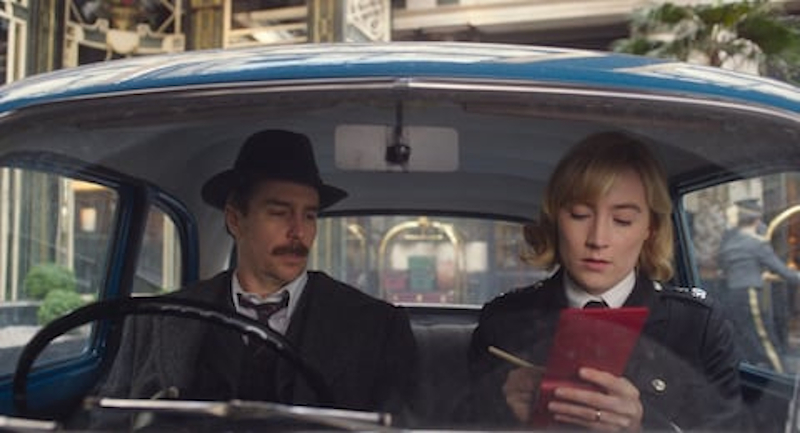
Rockwell doesn’t really feel like a British police inspector; it almost as if he’s an American gumshoe who’s wandered in from an entirely different movie. The unashamedly Irish Ronan fares rather better, mostly asking the wrong questions at the wrong time and obsessively writing everything down in a little notebook. The screenplay lets her down too though, with her note-taking at one point leading her and the Commissioner to believe the Inspector is the murderer. Any credibility the film may possibly have had to start with has completely evaporated by this point.
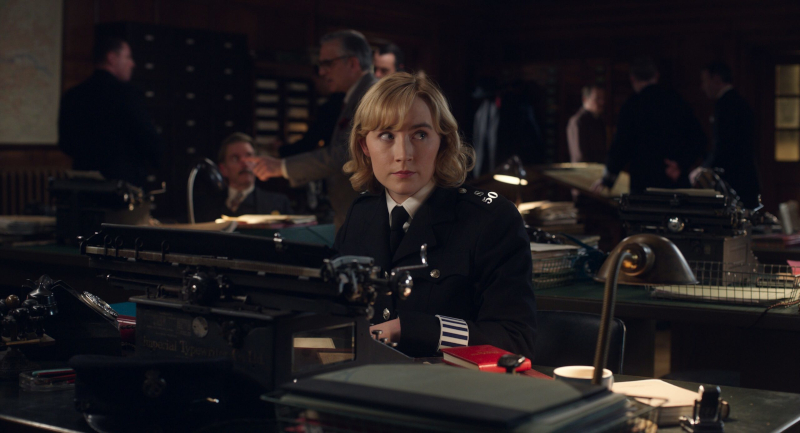
Ronan’s cheerfully naive trainee police officer nevertheless remains a rare highlight here, one of the few reasons for watching this generally ill-judged effort. Given that the script augments her lines with phrases like, “If I may be so bold” (assuming these weren’t improvised), she invites comparisons with the deferential Philip Stone in The Shining, (Stanley Kubrick, 1980). If. I may be so bold. Miss.
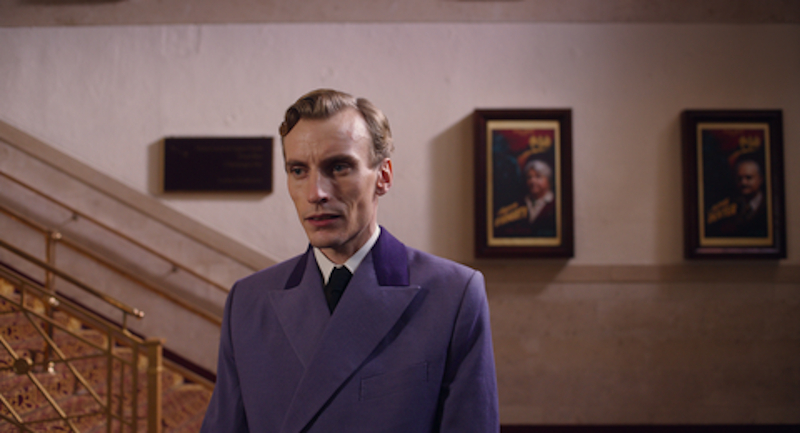
It has a couple of further assets in the form of Charlie Cooper as a much put-upon Ambassadors usher and, when she finally and briefly appears, Shirley Henderson’s scene-stealing turn as The Mousetrap’s author Agatha Christie. Otherwise, though, it’s all pretty twee.
It would be a spoiler to reveal the end of a whodunit. The title card that ends classic French shocker Diabolique (Henri-Georges Clouzot, 1955) asks the audience not to reveal that film’s ending to the audience. The whodunit, as Hitchcock noted, is not particularly cinematic: he preferred the suspense thriller, the whenaretheygoingtodoit. See How They Run is not particularly cinematic, and it’s certainly no Diabolique.
See How They Run is out in cinemas in the UK on Friday, September 9th.
Trailer:
